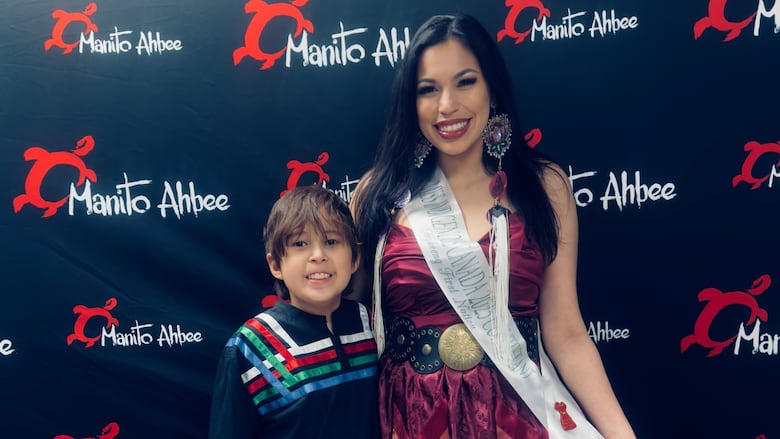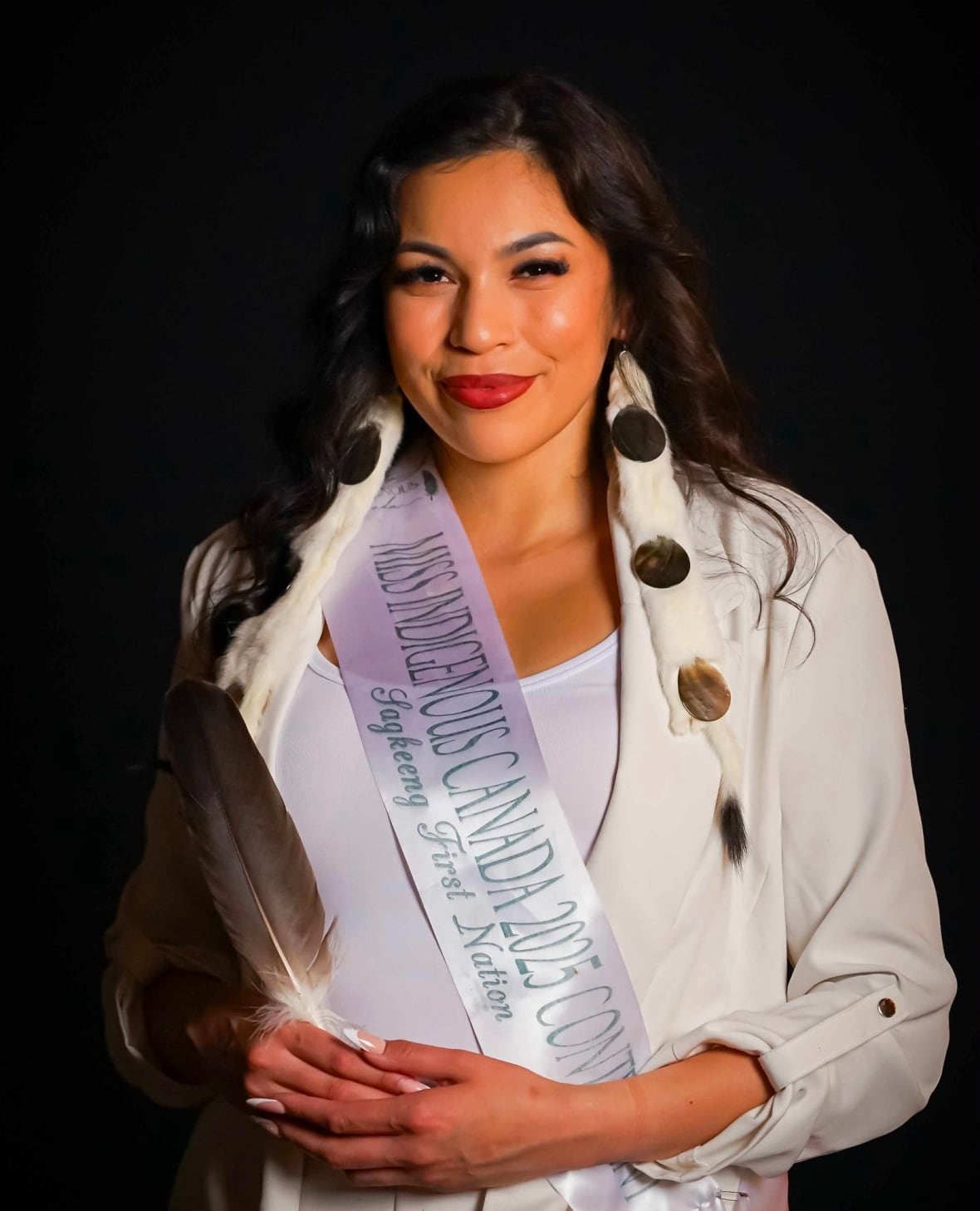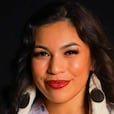I was a teenage mom. Now I'm a contestant for Miss Indigenous Canada
'This pageant isn't about glamour. It's about healing, leadership and pride,' Tamara Fontaine writes

This First Person article is the experience of Tamara Fontaine, an Anishinaabe mother, student and community advocate based in Winnipeg. For more information about CBC's First Person stories, please see this FAQ. You can read more First Person articles here.
Today, I am a contestant in Miss Indigenous Canada 2025.
I'm representing not just myself, but my son, my ancestors and my community. Standing here is more than a title or a pageant. It's a full-circle moment, one I never imagined possible nine years ago.
At 16, I became a single teenage mother.
I was still in high school, overwhelmed, scared and unsure of what my future would look like. I grew up in poverty, surrounded by systems that didn't always support young Indigenous girls like me. I remember crying quietly in the bathroom during class breaks, wondering if I was ever going to get through it. I felt so much pressure to be strong, while still trying to figure out who I was.
I've learned that my voice is a tool for change.- Tamara Fontaine
But even then, I knew I wanted to give my son, Noah, a better life. He was always my anchor. He became the reason I kept going when things got hard. I returned to school and pushed through late nights, grief and moments of deep self-doubt. It wasn't easy. I faced judgment and stigma for being a teen mom, especially as an Indigenous woman. There were times when I felt invisible and forgotten, but I kept showing up for him, and for myself.

What helped me most along the way was reconnecting with my culture and finding the right support systems. I joined Wahbung Abinoonjiiag, a community-based organization that supports families and survivors of domestic and family violence. At the time, I was navigating my own experiences with unhealthy and unsafe relationships. I didn't always have the words for what I had gone through, but Wahbung gave me a space to feel seen, to begin healing and to reconnect with who I was outside of survival.
There was also a women's empowerment program I joined while I was there, which became a turning point in my journey. It focused on building confidence, reclaiming our voices and recognizing our worth as Indigenous women. Through workshops, teachings and sisterhood, I began to feel stronger not just emotionally but spiritually and culturally. It helped me shift from surviving to thriving.
Through ceremony, cultural teachings and that empowering community, I began to understand that healing wasn't just possible, it was mine to claim.
Taking Charge (a provincially funded support service for single parents) became another turning point in my journey. They helped me get into the University of Manitoba and provided child care so I could focus on my education while still being there for my son. I started out in the faculty of arts, unsure which direction I wanted to go.
Over time, through my lived experiences and my growing involvement in community work, I realized that my heart was being pulled toward social work. I wanted to help others the way others had helped me, so I switched faculties and was accepted into the inner-city social work program, where I am now in my second year.
This program feels like home. I'm surrounded by people who understand the importance of decolonizing systems, advocating for our people and using our stories as medicine. I've learned that my voice is a tool for change, and my story is one of survival and transformation.
The grief of losing loved ones has also shaped who I've become. I carry their memories with me — especially my late family members from Sagkeeng First Nation, whom I will honour during the cultural presentation of this pageant.
I'll be dancing the old style jingle dress dance, a dance of healing, with their urns and photos beside me. This isn't just a performance. It's a ceremony. It's my way of saying: I remember you. I carry you. And I'm still dancing.
I carry my ancestors in my heart, my son on my shoulders and my community in every step I take.- Tamara Fontaine
Deciding to apply for Miss Indigenous Canada was both exciting and terrifying. I didn't grow up seeing people like me in spaces like this, but I realized that's exactly why I needed to step into it.
This pageant isn't about glamour. It's about healing, leadership and pride. It's a chance to tell our stories on a national stage, to inspire our youth and to reclaim our voices.
When I found out I had been accepted as a contestant, I cried. It felt like a quiet victory for every younger version of myself who thought she wasn't good enough. I thought about my son and how he'll be watching me from the audience, and I knew I made the right decision. I want him to see what it means to walk in pride, to stand in ceremony and to carry your ancestors with you every step of the way.
To the teenage moms who might be reading this or hearing me on the radio:
I see you. I know how heavy the world can feel when it's telling you that you won't make it. But you will. Your story is not over. You are raising the next generation with love, and that alone is powerful.
Your child is not a setback. They are your strength, your reason, your fire.
Being a contestant in Miss Indigenous Canada isn't just about a title. It's a reflection of every hardship I've faced, every community that held me up and every lesson I've learned about resilience, motherhood and identity.
I carry my ancestors in my heart, my son on my shoulders and my community in every step I take.

